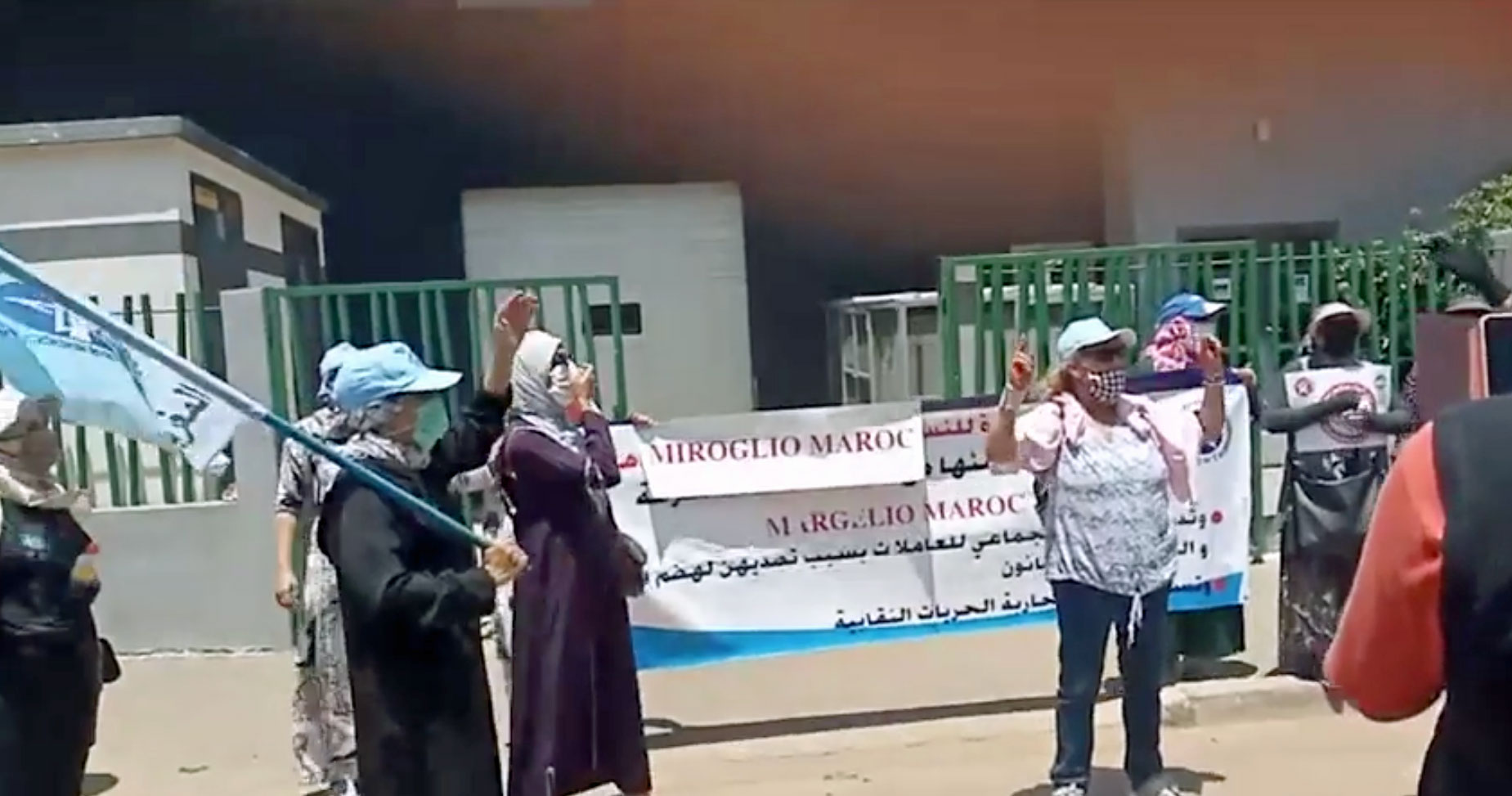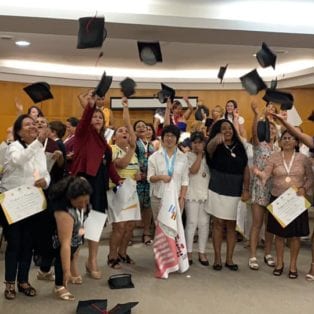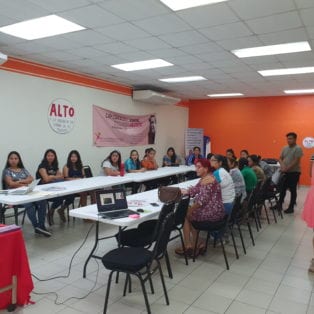Garment workers at the Miroglio Maroc factory are standing strong with 14 co-workers who they say were fired for speaking out against the lack of sufficient safety gear and other protective measures at the workplace during the novel coronavirus pandemic. Three workers...
IMPROVING WORKER HEALTH AND WELL-BEING THROUGH LEADERSHIP, ORGANIZING AND COLLECTIVE ACTION
Our focus on building strong trade unions would not be complete without challenging all forms of worker repression, particularly how violence against women exacerbates the inequalities they face in their workplaces and limits their ability to push for the changes they want and need.

Violence against women in the workplace causes women to leave their jobs or discourages them from entering fields where they anticipate experiencing it. Not only does this perpetuate occupational segregation and the gender pay gap, it comes at a significant cost to employers and the economy in general.
- South Africa lost an estimated 1.3 percent of the country’s GDP in 2014 due to violence against women.
- The productivity cost of sexual harassment in the Cambodian garment industry is $89 million annually.
- Violence against women and men was estimated to cost the European Union more than $32.5 billion euros in 2021.
Our approach
For nearly 30 years, we have prioritized eradicating violence against women on the job by developing grassroots strategies with women workers, their unions and women’s rights organizations.
We’ve developed multifaceted, bold programs that focus on:
- Advancing women worker leadership development through our Leadership for Unity, reNewal and Amplification (LUNA) program using a trauma-informed curriculum with our women worker partners.
- Worker rights education.
- Coalition building and grassroots movement-building and organizing.
- Using collective action to build power to bargain legally binding employer agreements that address and prevent violence against workers.
- Legal reform advocacy to hold governments accountable, including the ratification and implementation of International Labor Organization Convention 190 (C190).
These comprehensive programs are delivered across multiple sectors in more than 26 countries and cross-regionally.

Historic progress
In 2019, our Lesotho-based garment worker partners, their unions, local women’s rights groups, and international worker rights organizations negotiated groundbreaking agreements with major fashion brands and the factory owner, Nien Hsing Textiles, to end rampant violence against women at five factories.
The Lesotho Agreements represent the first instance in which brands and their suppliers entered into binding and enforceable workplace agreements to stop violence against women and men, and protect workers.
Our program in Lesotho went beyond just the bargaining table–we helped our partners craft a code of conduct and establish an independent monitoring system that, at its signing, provided more than 10,000 garment workers with access to a complaint and investigation process that can mandate consequences for perpetrators of violence against workers at Nien Hsing factories, including dismissal.
Click here to open the video in a new tab.
Ratification and implementation of Convention 190
Beginning in 2014, we were a key member of a global coalition led by our women workers partners, including global union federations and other worker rights organizations, advocating for a landmark global treaty – Convention 190 (C190) – to eliminate violence and harassment at work, including gender-based violence and harassment.
When ratified, C190 requires governments, employers and workers to come together to develop and implement solutions that will prevent and address these abuses.
The International Labor Organization adopted C190 in June 2019, and we continue to support our partners as they push for ratification by their governments, recognizing the detrimental physical and emotional health implications of violence against women, as well as the value of women in economic development.
Domestic Workers: Healing, Growing, Taking Action
As long-time union activists helping domestic workers form unions and get a voice on the job, Andrea Del Carmen Morales Pérez and Librada Maciel found themselves fighting burnout—from stress, from nonstop work and from unrecognized trauma they carried with them for...
Honduran Domestic Workers Join Newly Formed Union
Domestic workers in Honduras increasingly are exercising their rights on the job in the country, where they have few labor law protections and so are especially vulnerable to abuse. More than 100 workers recently joined SINTRAHO (Sindicato Nacional de Trabajadoras del...
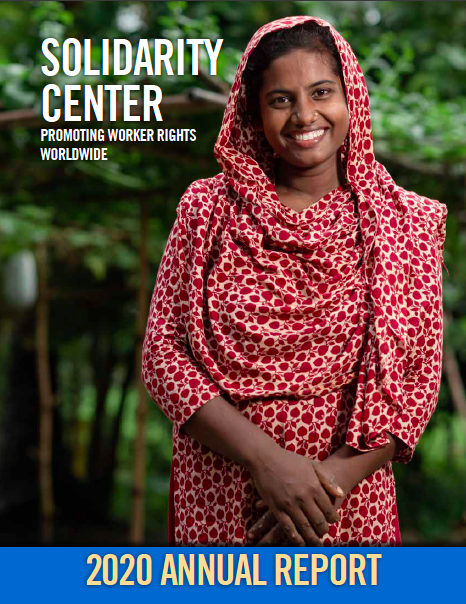
2020 Annual Report
Download here.
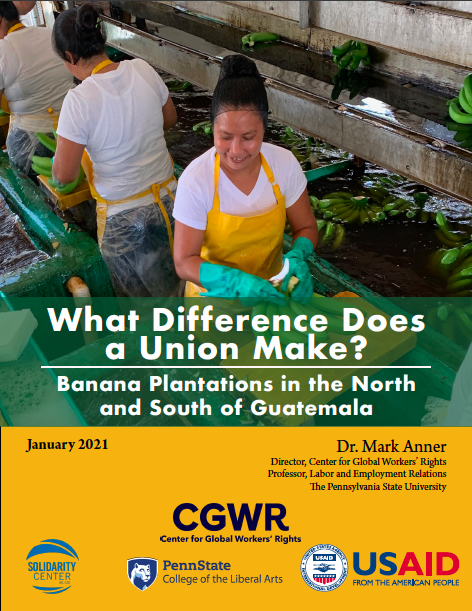
What Difference Does a Union Make? Banana Plantations in the North and South of Guatemala
Guatemalan banana workers without a union work longer hours and earn less than half than of those who are unionized, and report more cases of verbal and physical abuse. Download in English. Download in Spanish.
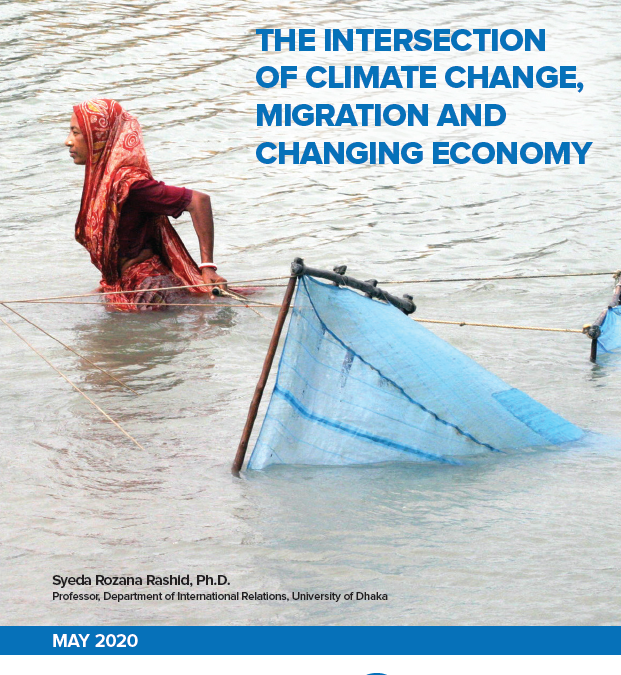
REPORT: CLIMATE CHANGE IN BANGLADESH DRIVES WORKER VULNERABILITY, POVERTY
This report, The Intersection of Climate Change, Migration and Changing Economy, explores the links among climate change, economic activities and migration in the coastal areas of Khulna and Jashore, Bangladesh, demonstrating its impact on the availability of decent...
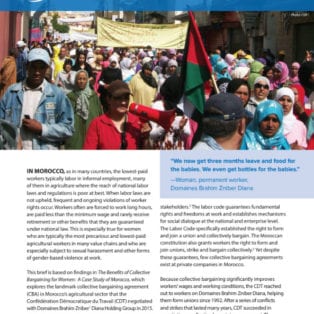
The Benefits of Collective Bargaining for Women Workers in Morocco
Download in English. Download in Arabic. This report was made possible through the generous support of the Ford Foundation.
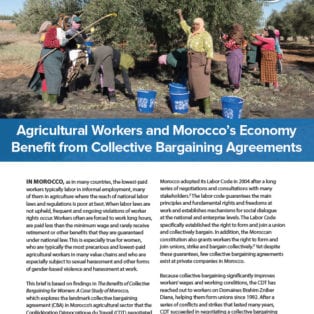
Agricultural Workers and Morocco’s Economy Benefit from Collective Bargaining Agreements
. Download in English Download in Arabic. This report was made possible through the generous support of the Ford Foundation.
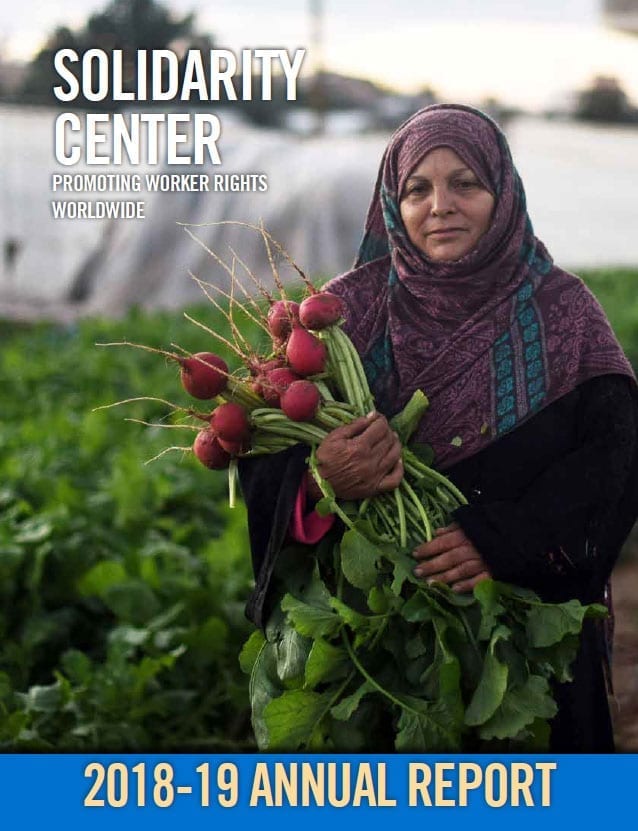
Annual Report, 2018–2019
Download here.

